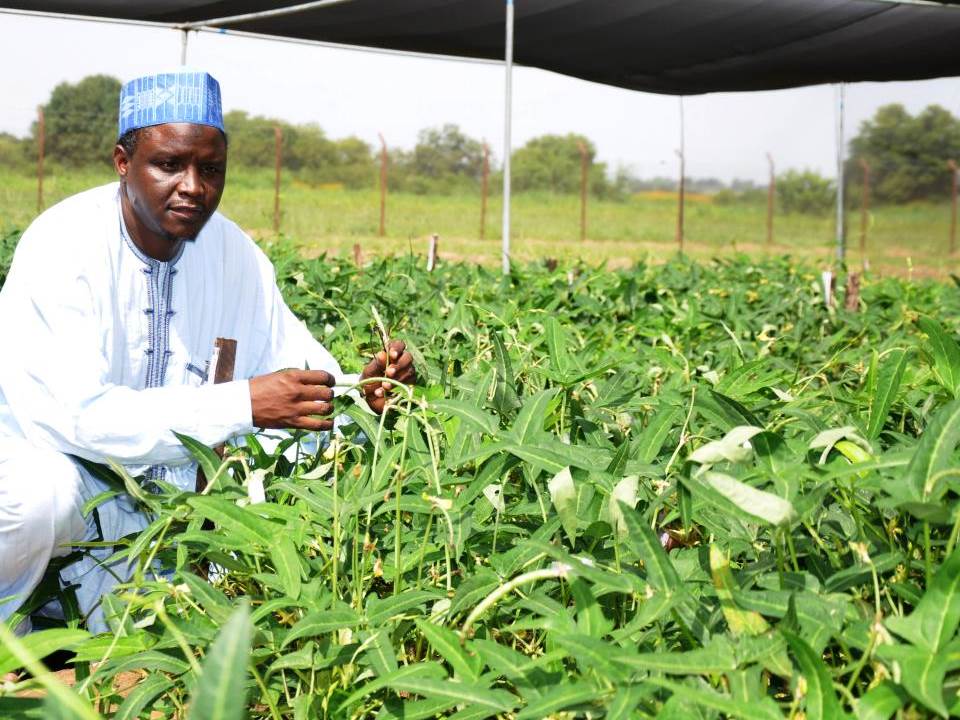By Peter Theuri
In the first of a series of webinars organized as part of a build-up to the 2025 edition of the Africa Biennial Biosciences Communication (ABBC) Symposium, tens of stakeholders, on March 20, deliberated on the progress of the last 10 years of the ABBC, and highlighted some of the key areas to focus on in the future.
The webinar was titled ‘Taking Stock of Africa’s Agribiotech Journey’, and helped stakeholders peek into the past to appreciate progress the continent has made.
ISAAA AfriCenter’s Senior Program Officer Paul Chege tracked ABBC’s contribution to this journey, noting the hurdles that have been overcome, alongside the challenges that still plague the course.
In introduction, ISAAA AfriCenter Director and ABBC Convenor Dr Margaret Karembu lauded the collaboration among partners that has been the cornerstone of Africa’s progress in agricultural biotechnology. She observed how ABBC, despite being Africa-led, has attracted international participants, enriching its discourse and strategies, and how it has pushed crucial debate on stakeholder information needs, engagement strategies, and messaging for agri-biotech and biosafety communications.
Dr Chege, picking out foibles Africa wishes to outgrow, drew a roadmap that outlined the successes since the first ABBC symposium of 2015, which led to the establishment of a community of practice in biosafety communication. The successes of every other symposium, he noted, trickle onto the next, forming a series of stops that have progressively helped the course.
“We cannot understate the role of ABBC in creating opportunities for stakeholders to engage in meaningful dialogue, leading to improved understanding and implementation of biosafety protocols,” he said.
Linda Asante, Senior Editor at Ghana News Agency, speaking as a journalist and for journalists, highlighted the crucial role they play in bridging the gap between scientists and society. Raging misinformation and disinformation, however, cripple efforts to communicate effectively, she said. Asante praised the Africa Science Dialogue, a portal that has gradually grown into the go-to source of information on science, health and the environment.
“Fellow journalists and science communicators should utilize the resources available through ABBC to ensure that the messages passed are factual and timely,” she said. “We also need to have greater engagement (among various stakeholders) to ensure accurate, impactful coverage of scientific developments, particularly in biotechnology.”
Dr. Rufus Ebegba, the founder of the Rufus Ebegba Center for Leadership and Environmental Sustainability and former CEO of Nigeria’s National Biosafety Management Agency (NBMA), indicated that through ABBC, he gained a deeper understanding of the inherent values of biotech crops and improved his communication skills, which enabled him to effectively advocate for approved biotech products in Nigeria.
The ABBC Symposium, said Dr Ebegba, had equipped him with the knowledge and confidence needed in biosecurity decision-making, particularly in reducing misinformation, promoting transparency, and fostering collaboration among stakeholders, media, and government institutions.
Hennie Groenewald, the CEO of Biosafety South Africa, praised the strengthening of Africa’s regulatory frameworks and increased ownership within international forums like COPMOP. While acknowledging existing challenges, he remains optimistic about the continent’s future in biotechnology, driven by innovation, local engagement, and a supportive policy environment.
Diran Onifade, the Editor-In-Chief of Nigeria’s Africasti.com.ng, noted that opposition to innovations like GMOs is growing, with diverse stakeholders – including religious leaders, non-experts, and political figures – spreading misinformation, and therefore needs serious monitoring.
“This evolving landscape challenges traditional communication strategies. We need to re-assess media approaches,” he observed.
While applauding the successes Africa can boast over the past several years, Dr Karembu noted that there remains a number of systemic challenges which should not be ignored. Political interests, for example, tend to fuel the spread of misinformation and disinformation.
“Genuine social issues are susceptible to politicization and misinformation,” she said, highlighting the hijacking of Kenya’s Gen Z movement earlier last year, where agitation for better governance was turned into activism that included an anti-GMO rally. “Addressing this requires sector-specific strategies grounded in context and practicality to safeguard.
(Peter Theuri is a science communicator and journalist, currently serving as the Digital Communication Officer for ISAAA AfriCenter)


